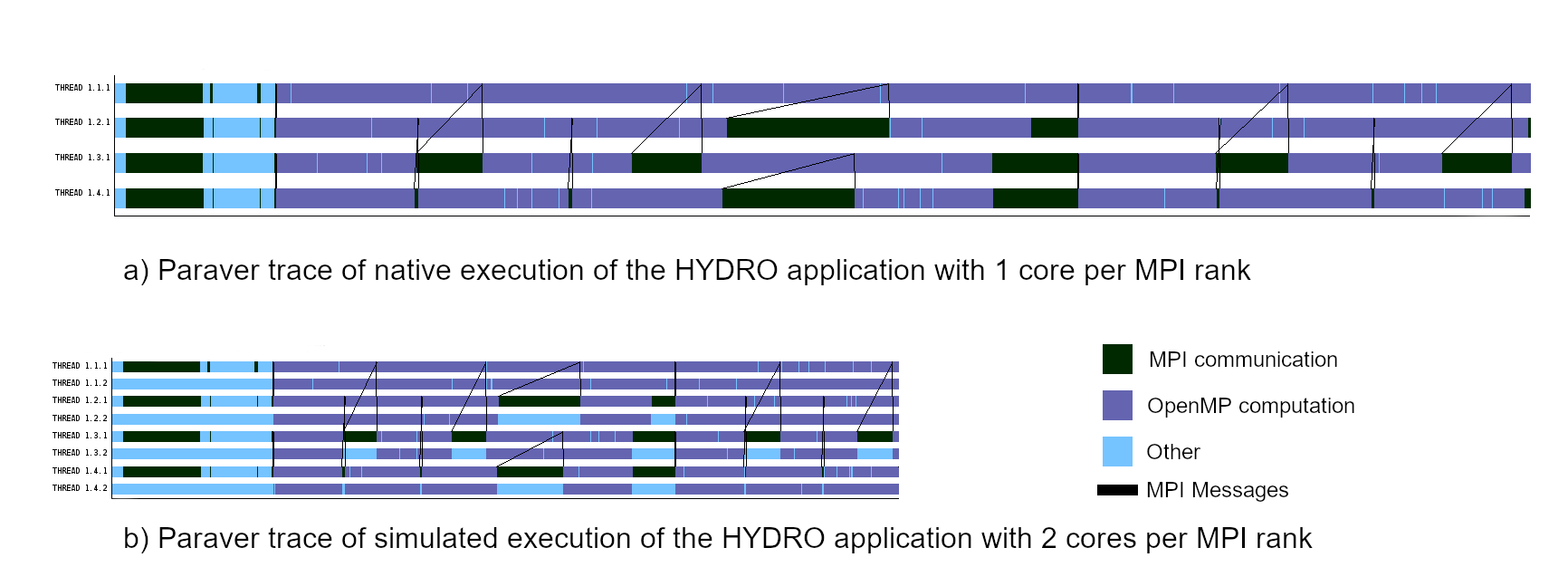
MUSA
The MUlti-level Simulation Approach (MUSA) is a simulation methodology that employs different tools and abstraction levels to reduce simulation overhead but maintain high precision. MUSA targets HPC applications which use both MPI and OpenMP and allows simulation of high level runtime events. MUSA’s simulation infrastructure is capable of changing the level of simulation detail, from cycle-accurate microarchitectural simulations to high-level analytical models. The methodology enables the combination of detailed (higher computational cost) and high-level (higher simulation speed) simulations, enabling simulation of large-scale machines with thousands of cores in a reasonable amount of computational time, while guaranteeing a high degree of accuracy.

Goals within DEEP-SEA
In DEEP-SEA, MUSA’s memory model will be extended to support heterogeneous memory, allowing memory modules of different characteristics to be organized in vertical or horizontal hierarchies. Moreover, MUSA’s infrastructure will also be extended to support OpenMP directives that explicitly manage heterogeneous memories. MUSA is currently available on the DEEP system.
Publication
Thomas Grass, César Allande, Adrià Armejach, Alejandro Rico, Eduard Ayguadé, Jesus Labarta, Mateo Valero, Marc Casas, and Miquel Moreto. 2016. MUSA: a multi-level simulation approach for next-generation HPC machines. In Proceedings of the International Conference for High Performance Computing, Networking, Storage and Analysis (SC ’16). IEEE Press, Article 45, 1–12.

